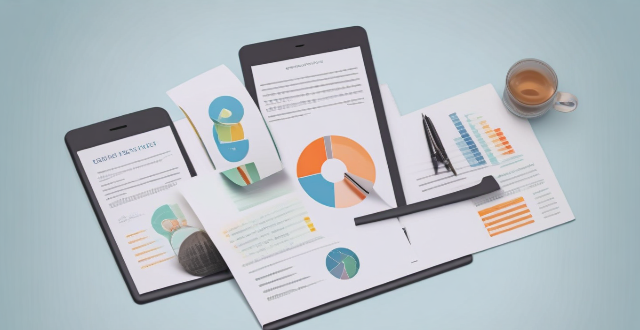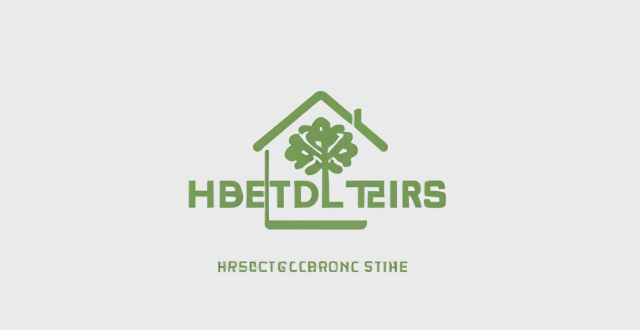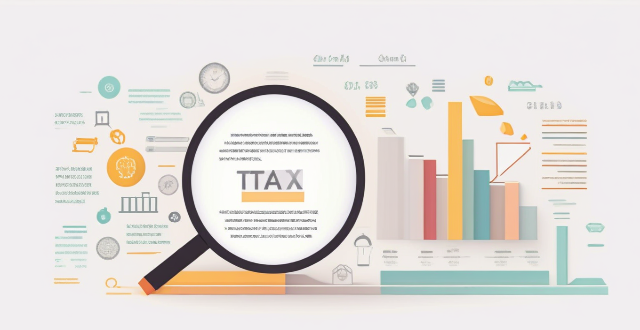Income Expenses

How do I manage unexpected expenses within my budget ?
Unexpected expenses can be managed within your budget by establishing an emergency fund, reviewing and adjusting your budget, prioritizing expenses, considering short-term solutions, negotiating and seeking assistance, avoiding taking on debt, planning for future expenses, and staying vigilant with your budget. Start small with saving for emergencies, identify non-essential expenses to cut back on, prioritize essential expenses, consider side hustles or selling unused items for extra income, negotiate bills and seek assistance when needed, avoid high-interest loans, learn from past experiences to anticipate future expenses, and regularly review and adjust your budget as circumstances change.

What is the ideal percentage of income to save for wealth growth ?
This text discusses the importance of saving a portion of one's income for wealth growth and explores factors such as personal financial situation, financial goals, lifestyle choices, and income level that determine the ideal savings rate. It also provides general guidelines for saving, including starting small, increasing gradually, and aiming for at least 20% of income.

How does self-employment affect my personal income tax calculation ?
Self-employment affects personal income tax calculation by requiring net income reporting, quarterly estimated tax payments, utilizing deductions and credits, filing specialized forms, and paying self-employment tax. Staying organized and informed about tax laws is crucial for effective tax management.

What are the deductions and exemptions in personal income tax calculation ?
Deductions and exemptions in personal income tax calculation include standard deduction, itemized deductions, tax credits, and exemptions. Standard deduction is a fixed amount subtracted from an individual's taxable income, while itemized deductions are for specific expenses not covered by the standard deduction. Tax credits directly reduce the amount of taxes owed, and exemptions are amounts subtracted from an individual's taxable income to reduce their tax liability. Understanding these deductions and exemptions can help taxpayers minimize their tax liability and keep more of their hard-earned income.

How can I maximize my retirement income from pension plans ?
The article provides strategies for maximizing retirement income from pension plans, including understanding the types of plans, optimizing contributions, investing wisely, taking advantage of tax benefits, and planning for retirement expenses. It emphasizes the importance of starting early, diversifying investments, and regularly monitoring and adjusting them. The article also highlights the benefits of tax-deferred growth and potential tax-free withdrawals. By following these strategies, individuals can help ensure a comfortable retirement with a steady stream of income from their pension plans.

How long does it take to achieve financial freedom ?
Achieving financial freedom is a goal many people strive for, but the time it takes varies based on individual circumstances, habits, and market conditions. Factors influencing the journey include initial financial standing, income level and consistency, lifestyle and expenses, investment choices and returns, and economic and market conditions. Strategies to potentially shorten the timeline include increasing income, reducing expenses, investing wisely, managing debt, and planning for retirement. The path to financial freedom is unique for each person, but understanding the factors and using effective strategies can help anyone work towards achieving financial independence more efficiently.

What happens if I make a mistake in my personal income tax calculation ?
Mistakes in personal income tax calculation can lead to underpayment or overpayment of taxes, errors in reporting income or deductions, and potential penalties, interest charges, or even criminal charges. To avoid these consequences, it's essential to stay organized, use tax software or consult a professional, review your return carefully, and file on time.

How can I create an effective education budget plan ?
Creating an effective education budget plan involves identifying educational goals, determining expenses, evaluating financial resources, creating a budget timeline, tracking spending, and reviewing and revising the budget regularly. This process helps ensure that you have the necessary funds to cover your educational expenses while achieving your academic objectives responsibly.

What are some tips for managing an education budget effectively ?
The article provides effective tips for managing an education budget, including creating a budget plan, tracking spending, looking for scholarships and grants, considering part-time work or freelancing, reducing unnecessary expenses, and planning ahead for future expenses. It emphasizes the importance of staying organized, prioritizing expenses, and seeking out funding opportunities to ensure that students have the resources they need to succeed in their academic pursuits.

Is it possible to lower my monthly utility expenses without sacrificing comfort ?
Yes, it is definitely possible to reduce your monthly utility expenses without compromising your comfort. Here are some tips and strategies that you can implement: - **Energy-efficient appliances**: Replace old appliances with energy-efficient models to save on electricity bills. - **Thermostat settings**: Adjust your thermostat settings to save money on heating and cooling. - **Lighting**: Use LED bulbs to use less energy and last longer than traditional incandescent bulbs. - **Water usage**: Fix leaks to save on your water bill. - **Insulation**: Improve insulation to keep your home warm in winter and cool in summer, reducing the need for heating and cooling. - **Unplug electronics**: Unplug electronics when not in use to save on your electricity bill. - **Shop around**: Shop around for better deals on your utilities. - **Be mindful of usage**: Be aware of how much water, gas, and electricity you're using to identify areas where you can cut back.

What are the tax implications of receiving a scholarship ?
Receiving a scholarship can offset higher education costs, but understanding the tax implications is crucial. Scholarships for tuition, fees, and educational expenses are typically non-taxable, but those covering personal expenses may be taxed. Accurate record-keeping, separating expenses, consulting tax professionals, and planning ahead are key to managing these implications effectively.

How is individual income tax calculated ?
Individual income tax calculation involves determining gross income, subtracting allowable deductions, calculating adjusted gross income (AGI), identifying tax credits, calculating taxable income, applying tax rates, and considering withholding and estimated tax payments. The process varies slightly by jurisdiction but generally follows these key steps. It is recommended to consult with a tax professional or use reliable tax preparation software to ensure accuracy and maximize any applicable deductions and credits.

What measures can be taken to reduce income inequality in low-income countries ?
The text discusses measures to reduce income inequality in low-income countries. It covers topics such as education and training, economic policies, labor market interventions, social safety nets, land reforms, governance and anti-corruption measures, and international cooperation. The measures include improving access to quality education, implementing progressive tax systems, creating minimum wage laws, developing effective social assistance programs, implementing land reform policies, strengthening institutional capacity to combat corruption, and seeking foreign direct investment that aligns with sustainable development goals.

How does the tax bracket affect my personal income tax calculation ?
Tax brackets define the range of income subject to specific tax rates, embodying the principle of progressive taxation. Your income level determines the applicable tax bracket(s), which influences how much personal income tax you must pay. The marginal tax rate represents the highest rate on additional income, while the effective tax rate is the average rate across your total income. Being aware of your tax bracket can guide financial planning and strategies to possibly lower your taxable income.

How can I minimize my personal income tax liability ?
The article discusses strategies for minimizing personal income tax liability, including maximizing retirement contributions, taking advantage of tax credits and deductions, considering tax-efficient investment strategies, deferring income when possible, and managing withholdings. It emphasizes the importance of careful planning and consulting with professionals to reduce one's tax burden.

How much money do I need to achieve financial freedom ?
Financial freedom is a subjective term that varies from person to person. It generally means having enough income-producing assets to cover your expenses without relying on a job. The amount of money needed to achieve financial freedom depends on several factors, including lifestyle, location, and future goals. To determine your financial freedom number, consider factors such as lifestyle expenses, future goals, emergency funds, and retirement planning. Strategies to achieve financial freedom include building passive income streams, investing wisely, living below your means, and creating a plan and sticking to it. By following these strategies, you can reach your financial goals faster and achieve financial freedom over time.

How do I allocate funds for different educational needs in my budget plan ?
Education is crucial for personal growth, and budgeting for it is essential. Here's how to allocate funds effectively: determine goals, assess finances, create an education fund, prioritize expenses, use a budgeting tool, cut unnecessary expenses, seek financial aid, consider part-time work, and reevaluate regularly.

Are there any online tools available for calculating personal income tax ?
The text provides a summary of online tools available for calculating personal income tax. It mentions TurboTax, H&R Block, IRS Free File, and TaxAct as popular options. These tools help individuals determine their tax liability based on their income, deductions, and other factors. However, it is important to consult with a qualified tax professional if there are any questions or concerns about the tax situation.

How much should I be saving each month ?
Saving money is crucial for financial planning, but determining how much to save monthly can be challenging. Factors to consider include income, expenses, debts, goals, and lifestyle preferences. It's generally recommended to save at least 20% of your income, prioritize paying off debts, allocate savings towards short-term and long-term goals, and adjust based on lifestyle choices. By creating a personalized savings plan, you can work towards achieving your financial objectives and securing your future.

What is the difference between federal and state income tax calculations ?
The article discusses the process of calculating federal and state income taxes in the United States. Federal income tax calculations are based on the Internal Revenue Service (IRS) tax code, while state income tax calculations vary by state due to different tax laws and regulations. Both federal and state taxes involve determining taxable income and applying tax rates, but specific details such as rates, deductions, and exemptions can vary significantly between the two levels of government.

How often do I need to file my personal income tax return ?
Filing personal income tax returns is a crucial financial responsibility for individuals. The frequency of filing depends on various factors such as your residency, employment status, and income level. In this article, we will discuss the different scenarios that determine how often you need to file your personal income tax return. Personal income tax returns are filed annually in most countries. However, there are certain situations where you may need to file more frequently or less frequently. Your residency status plays a significant role in determining how often you need to file your personal income tax return. If you are a resident of a country, you are required to file your tax return annually, regardless of your employment status or income level. If you are employed and receive a regular salary, your employer is responsible for withholding taxes from your paycheck and remitting them to the government. In this case, you are still required to file your personal income tax return annually to report your total income and ensure that the correct amount of taxes has been withheld. The frequency of filing your personal income tax return also depends on your income level. If you have a low income and do not exceed the minimum threshold set by the government, you may not be required to file a tax return. However, it is always advisable to check with the tax authorities to confirm if you are exempt from filing. Self-employed individuals who earn an income from their business activities are required to file their personal income tax return annually. This is because self-employed individuals are responsible for paying their own taxes and reporting their income to the government. Freelance workers who earn an income from providing services to clients are also required to file their personal income tax return annually. This ensures that they report their earnings accurately and pay the appropriate taxes. If you own rental properties and earn rental income, you are required to file your personal income tax return annually. This is because rental income is considered part of your overall income and must be reported to the government. Retirees who receive pensions or other forms of retirement income are generally required to file their personal income tax return annually. However, if their income falls below the minimum threshold set by the government, they may be exempt from filing. In conclusion, the frequency of filing your personal income tax return depends on various factors such as your residency status, employment status, and income level. It is important to understand these factors and consult with the tax authorities to ensure that you comply with the requirements for filing your tax return. By doing so, you can avoid penalties and ensure that you pay the correct amount of taxes.

What is the impact of a carbon tax on low-income households ?
The text discusses the impact of a carbon tax on low-income households, emphasizing that such a tax can significantly and negatively affect these households due to increased costs and its regressive nature. However, potential long-term benefits are also highlighted, including revenue generation for energy-efficient programs and overall cost reduction as carbon-based fuel use decreases. To mitigate negative impacts, strategies like revenue recycling, progressive tax design, and energy efficiency programs are suggested. The text concludes that with careful policy design and implementation, a carbon tax can contribute to a sustainable future while benefiting all income levels over time.

How do I manage debt effectively and pay it off quickly ?
Managing debt effectively and paying it off quickly requires a combination of discipline, strategy, and sometimes professional advice. Here are some steps you can take to get started: ### Assess Your Debt Situation - **Understand Your Debts**: List all your debts and identify high-interest debts. - **Determine Your Budget**: Calculate your monthly income and evaluate your expenses. ### Create a Debt Repayment Plan - **Choose a Repayment Method**: Avalanche or Snowball method. - **Make a Budget and Stick to It**: Allocate more funds to debt repayment and adjust as needed. - **Consider Refinancing Options**: Consolidate debts or negotiate with creditors. ### Implement Additional Strategies - **Increase Your Income**: Take on additional work or sell unwanted items. - **Reduce Your Expenses**: Cut out luxury spending and shop smarter. - **Improve Your Credit Score**: Pay on time and monitor your credit report. ### Seek Professional Advice if Needed - **Consult a Financial Advisor**: Personalized advice and debt management plans. - **Consider Debt Counseling**: Nonprofit credit counseling and beware of scams. Consistency and perseverance are key in paying off debt quickly.

What are the steps to achieving financial freedom ?
Achieving financial freedom is a multi-step process that involves defining personal goals, creating a budget, paying off debt, building an emergency fund, investing wisely, increasing income streams, living below one's means, and continuously educating oneself about personal finance strategies. This journey requires patience, persistence, and a commitment to long-term growth rather than short-term gains. By following these steps, individuals can work towards achieving the lifestyle they desire without relying on traditional forms of income such as a job.

How much money do I need to save for retirement ?
Planning for retirement is crucial to ensure a comfortable life after stopping work. The amount of money needed depends on factors like age, expected retirement age, lifestyle, and expenses. This guide helps calculate your retirement savings goal by determining your retirement age, assessing your financial situation, estimating retirement expenses, using retirement calculators, considering inflation and investment returns, and creating a savings plan. By doing so, you can work towards a comfortable and secure retirement.

What are the tax implications of investing in cryptocurrencies ?
Investing in cryptocurrencies can have significant tax implications that investors should be aware of. Here are some key considerations: ### Capital Gains Tax Capital gains tax is a tax on the profit realized on the sale of an asset. When you sell your cryptocurrency for more than you paid for it, you may owe capital gains tax on the difference between the purchase price and the selling price. The tax rate depends on your income level and how long you held the asset before selling it. - Short-term capital gains tax applies to assets held for less than a year and is taxed at your ordinary income tax rate. - Long-term capital gains tax applies to assets held for more than a year and is typically taxed at a lower rate than short-term gains. ### Income Tax If you earn income from mining or staking cryptocurrency, you may owe income tax on that income. Mining involves using computer processing power to validate transactions on the blockchain and earn new coins as a reward. Staking involves holding coins in a wallet and earning interest or rewards for supporting the network. Both activities can generate taxable income. ### Tax Deductions You may be able to deduct certain expenses related to your cryptocurrency investments, such as trading fees, software costs, and other expenses necessary to maintain your investment. However, these deductions are subject to specific rules and limitations, so consult with a tax professional to ensure you qualify. ### Reporting Requirements The IRS requires taxpayers to report all cryptocurrency transactions on their tax returns, including purchases, sales, trades, and income earned from mining or staking. Failure to report these transactions can result in penalties and interest charges. It's essential to keep accurate records of all your cryptocurrency transactions throughout the year. ### Tax Planning Strategies To minimize your tax liability when investing in cryptocurrencies, consider implementing tax planning strategies such as: - **Holding Assets Long-Term**: By holding your cryptocurrency for more than a year before selling it, you can take advantage of lower long-term capital gains tax rates. - **Harvesting Losses**: If you have losses on some of your cryptocurrency investments, you can offset those losses against gains made on other investments to reduce your overall tax liability. - **Donating Cryptocurrency to Charity**: Donating cryptocurrency to a qualified charity can provide a tax deduction while also supporting a cause you care about. In conclusion, investing in cryptocurrencies has several tax implications that investors should be aware of and plan for accordingly. It's essential to stay informed about changing regulations and consult with a tax professional to ensure compliance with IRS requirements.

Are there alternatives to taking out a student loan for college expenses ?
There are several alternatives to student loans for covering college expenses, including scholarships and grants, work-study programs, employer tuition assistance, military benefits, and crowdfunding and community support. Scholarships and grants are typically awarded based on academic merit or financial need, while work-study programs allow students to earn money through part-time jobs. Employer tuition assistance programs may cover all or a portion of tuition costs, and serving in the military can provide access to educational benefits like the GI Bill. Crowdfunding platforms and community organizations can also provide financial support for students in need.

How do low-income countries tackle poverty and improve the living standards of their population ?
Tackling poverty in low-income countries requires a multifaceted approach that addresses various aspects of development. Some key strategies include investing in education, promoting economic growth through foreign investment and local industry development, addressing healthcare needs by providing access to primary care services and training healthcare workers, and empowering women and girls through education, gender equality initiatives, and support for women-led businesses. By adopting these approaches, low-income countries can work towards improving the living standards of their populations and breaking the cycle of poverty.

What are the tax benefits of investing in certain financial products ?
This article discusses the tax benefits of investing in certain financial products such as retirement accounts, stocks, bonds, and real estate investments. It explains how these investments can help reduce taxable income and save money on taxes, while also growing wealth over time. The article provides an overview of the different types of retirement accounts and their tax benefits, as well as the advantages of investing in stocks and bonds, including capital gains taxes, dividend income, and interest income. It also covers the tax benefits of real estate investments, such as depreciation, tax credits, and rental income deductions. The article emphasizes the importance of understanding the tax implications of each investment option and working with a qualified financial advisor to develop a strategy that meets individual goals and minimizes tax liability.

Can anyone achieve financial freedom ?
Financial freedom, a state where one's passive and active income covers living expenses without regular time-for-money exchanges, is a goal many strive for. Key factors for achieving it include education, saving habits, smart investing, debt management, multiple income streams, avoiding lifestyle inflation, long-term planning, and the right mindset. Actionable steps include budgeting, automated savings, early investing, continuous learning, and networking with like-minded individuals. While not everyone may achieve financial freedom due to varying circumstances, it is attainable for those who are committed and strategic in their approach.